Are UV filters really effective for water?
As a modern water treatment equipment, UV filters have attracted much attention due to their high efficiency, environmental protection and no chemical additives. Many people may ask, are UV filters really effective for water treatment?
This article will explore the actual effect of UV filters in water treatment from multiple perspectives such as principles, application effects, advantages and disadvantages, and actual cases.
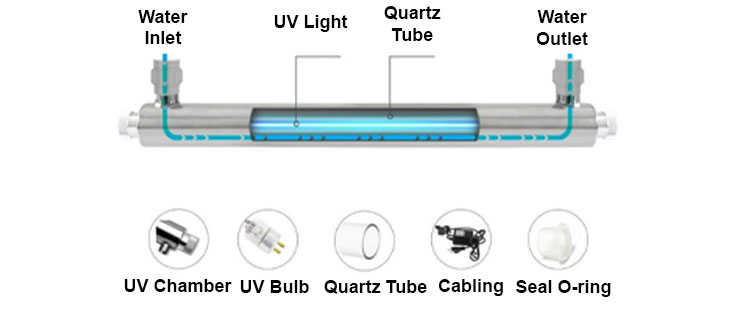
How does a UV filter work?
UV filters use ultraviolet (UV) light for water treatment. Ultraviolet light is an electromagnetic wave with a wavelength between 10 and 400 nanometers. Depending on the wavelength, ultraviolet light can be divided into four types: UV-A, UV-B, UV-C and vacuum ultraviolet light. Among them, UV-C (wavelength of 200-280 nanometers) has the strongest bactericidal ability and is the core part of UV filters.
UV filters emit UV-C light through UV lamps. When water flows through the filter, bacteria, viruses and other microorganisms in the water will be irradiated by ultraviolet light, causing their DNA or RNA structure to be damaged, thereby losing their ability to reproduce and survive. Since this sterilization method does not add any chemicals and does not produce by-products, it is considered a green and environmentally friendly water treatment technology.
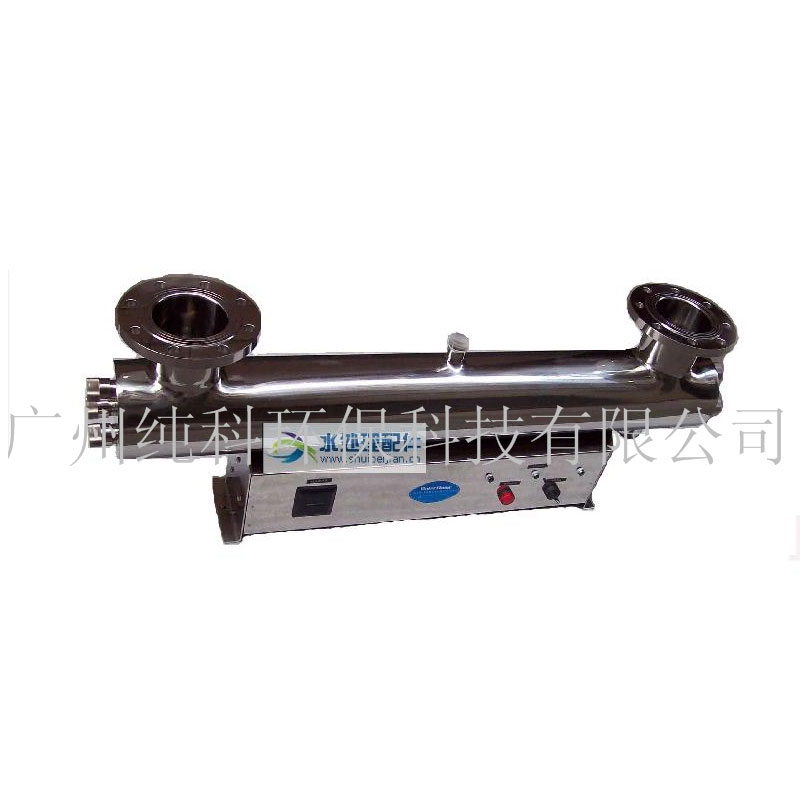
Are UV filters really effective for water?
Application effects of UV filters:
1. Sterilization effect (sterilization efficiency can reach more than 99%),
2. Removal of organic pollutants,
3. Wide range of applications (household, municipal, industrial water, swimming pools, etc.).
1. Sterilization effect:
UV filters have good sterilization effects on a variety of microorganisms, including Escherichia coli, Shigella, enterovirus and protozoa. Studies have shown that the sterilization efficiency of ultraviolet irradiation can reach more than 99%, which is sufficient to meet most water treatment needs. For example, in drinking water treatment, UV filters can effectively kill pathogenic bacteria in water and ensure drinking water safety.
2. Removal of organic pollutants:
Although UV filters are mainly used for sterilization, they also show certain effects in removing certain organic pollutants. Ultraviolet rays can destroy the structure of certain organic molecules, thereby reducing their toxicity or inactivating them. However, for some complex organic substances, such as pesticides and heavy metal ions, the effect of UV filters is limited and needs to be combined with other treatment technologies.
3. Wide range of applications:
Ultraviolet filters are widely used in many fields such as household drinking water treatment, municipal water supply, industrial water, swimming pools and aquariums. In the home, ultraviolet filters can be installed in faucets or pipes to filter drinking water. In municipal water supply, ultraviolet filters are used for large-scale water treatment to ensure the sanitation and safety of urban water supply. In industry, ultraviolet filters are used for the preparation of pure water and ultrapure water to meet the high requirements of high-tech industries for water quality.
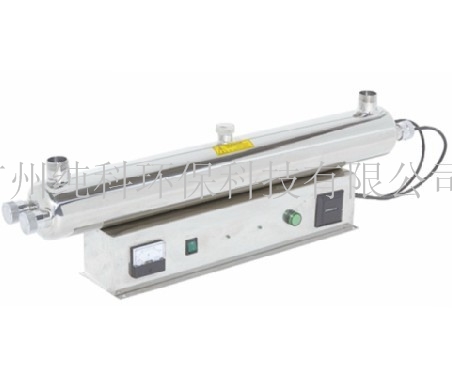
What are the advantages and disadvantages of ultraviolet filters?
1. Advantages of ultraviolet filters:
● High efficiency sterilization: ultraviolet filters can efficiently kill bacteria and viruses in water in a short time, with high sterilization efficiency.
● Environmentally friendly and pollution-free: no chemicals are added during the ultraviolet sterilization process, no harmful by-products are produced, and it is environmentally friendly.
● Simple operation: The ultraviolet filter has a simple structure, easy operation and low maintenance cost.
● Tasteless and no residue: The ultraviolet filter does not change the taste and smell of water and does not leave any residue.
2. Disadvantages of UV filters:
● High water quality requirements: UV filters have certain requirements for water transmittance. Excessive suspended matter and turbidity in water will affect the sterilization effect, so water needs to be pretreated before use.
● No sustained sterilization effect: UV sterilization is an instantaneous effect and cannot provide a sustained sterilization effect. Water still needs to be prevented from secondary pollution after treatment.
● Ineffective for certain pollutants: UV filters have no obvious treatment effect on pollutants such as heavy metals and inorganic salts, and need to be used in combination with other technologies.
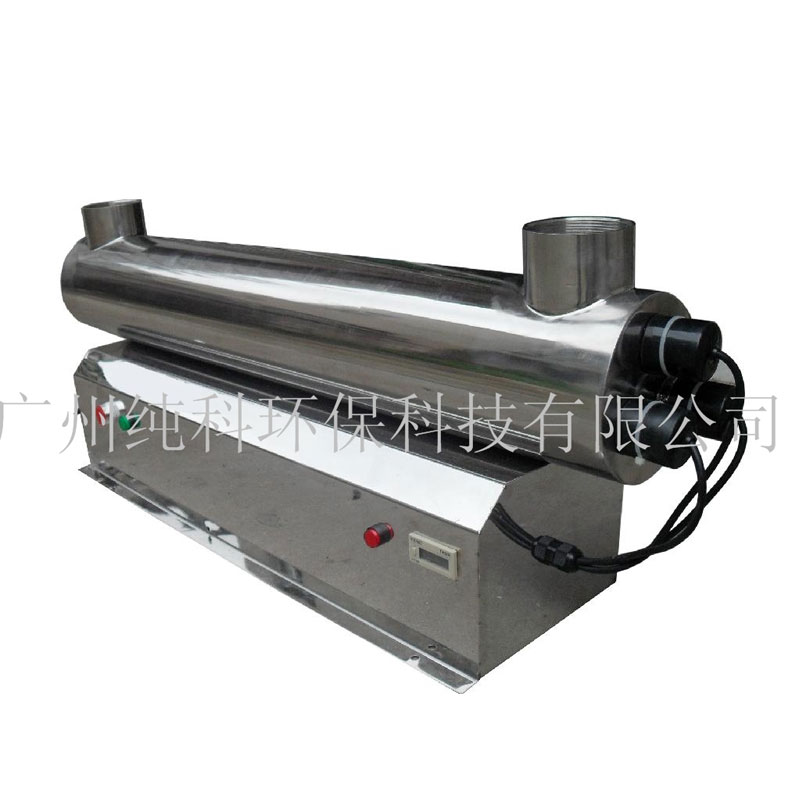
Actual case analysis of UV filters
1. Household drinking water treatment:
In households, UV filters are often used to treat tap water, especially in some areas with poor water quality. A family installed a UV filter. The water treated by the filter significantly reduced the odor and bacteria content, and family members did not experience gastrointestinal discomfort after drinking. This shows that UV filters do play a significant role in household drinking water treatment.
2. Municipal water supply:
A municipal water supply system introduced large-scale UV filters for deep treatment of tap water. After the tap water was treated with UV filters, the total number of bacteria decreased significantly, and the water quality reached the national drinking water standard. Residents reported that the safety and taste of water were significantly improved. This case shows that UV filters also play an important role in municipal water supply.
3. Industrial water treatment:
In the ultrapure water preparation process of an electronics factory, UV filters are used to kill microorganisms in the water to ensure the purity of ultrapure water. After using UV filters, the microbial content of ultrapure water was significantly reduced, meeting the requirements for the production of high-precision electronic components. This application demonstrates the practical effectiveness of UV filters in the industrial field.
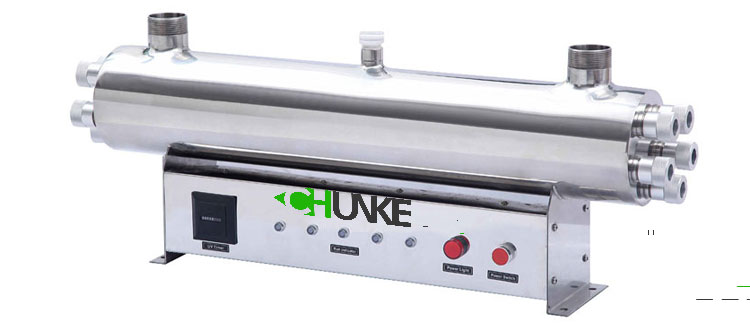
Conclusion on UV filters
As an efficient and environmentally friendly water treatment equipment, UV filters have demonstrated their excellent performance in many fields. Whether in household drinking water, municipal water supply or industrial water, UV filters have played an important role. However, in order to give full play to their effects, attention should also be paid to the pretreatment of water quality and the prevention of secondary pollution.
Overall, the effectiveness of UV filters in water treatment has been widely verified and is a reliable choice to ensure water quality safety.




